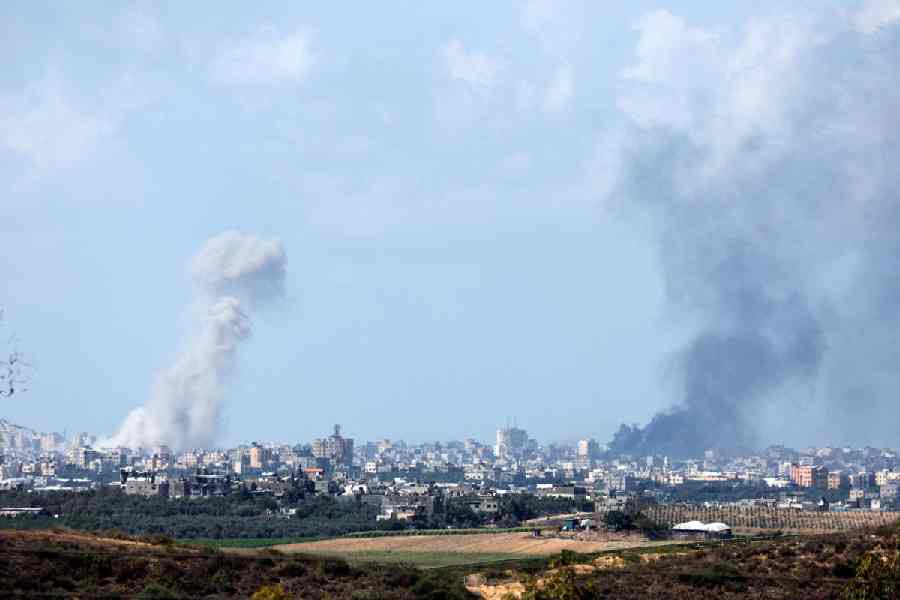For the unforeseeable future, Laila El-Haddad has one mission: To get the voices of her fellow Palestinians, along with their pleas for help, out to the rest of the world.
From her home office in Columbia, Maryland, El-Haddad juggled phone calls this week from journalists seeking her expertise on Gaza and Palestinian Americans trying to get the attention of their local elected officials.
In between the calls, the 45-year-old mother and author checked WhatsApp for updates from her own family members in Gaza during their brief windows of electricity and Internet access. “I’m just trying to stay sane by doing what I can to help,” El-Haddad said.
For many Palestinian Americans, there’s a sense of helplessness and hopelessness as they struggle to hear from loved ones in Gaza. Amid a fuel and water shortage, no electricity, and now a forced evacuation in the north, sending aid to civilians in Gaza is near impossible.
But even before this week, getting to Gaza to visit family for Palestinian Americans was a lengthy, exhausting and difficult experience, and most Gazans can never leave. Unlike Israeli Americans, Palestinian Americans say they have never been afforded the opportunity to freely help their loved ones in times of crisis.
Mohammad AbuLughod, who lives in Milwaukee, received fragmented updates from a cell phone his family in Gaza kept charged via a solar panel. His family shared those messages with The Associated Press: “I feel I am living in a nightmare,” one relative wrote in a message to the family.
AbuLughod is at a loss for what to do. “There’s no way to send support, we can’t send them money and money would probably be useless, because there’s nothing to buy,” he said.










